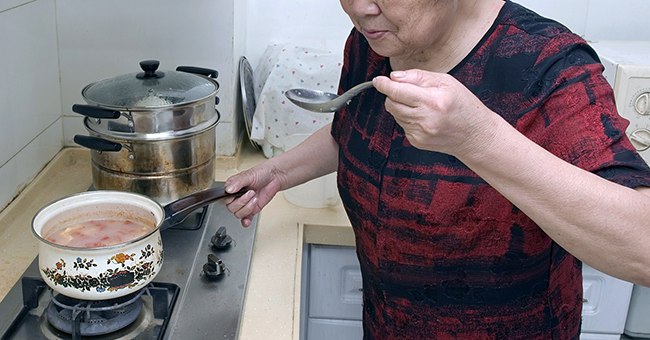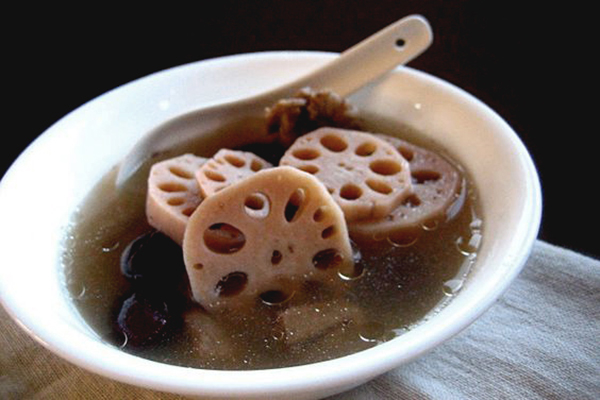Grandma’s Lotus Root Soup
When my parents still held hands, we ate at my paternal grandparents’ on Sundays. I loved it best when my grandmother made lotus root soup.
“Mama, leih dik tong zan hai hou yum (Grandma, your soup is really delicious)” was the first complete sentence I learnt in Cantonese.
When my parents eventually went their separate ways, I moved in with my grandparents.
Between juggling school, friends and work, I’d only come home at 12.00am when they’re fast asleep. Despite my primal fear of the dark, the hunger in my belly would push me to venture out of my bedroom.
In the kitchen, I knew for certain some kind of soup would be left on the stove—I always hoped for lotus root soup.
The soup would sit in an old-school metal tin. Though I’m not supposed to drink from the tiffin, I did anyway.
Drinking first in measured spoonfuls, then more greedily with the pot in my hands, the soup brought comfort in the way only grandma’s cooking can.
The warmth filled my heart and belly simultaneously; a love that feels like layers of towels wrapped snugly around, tugging at every memory and feeling I associated with grandma.
I’d think about the effort that goes into making lotus root soup, and the leftovers she sometimes had when I visited on weekdays.
I’d compare her soup against my mother’s, my helper’s, and the kopitiam auntie’s—all other lotus root soups paled in comparison.
And I’d wonder why our family’s weekly Sunday dinners turned to bi-weekly Sundays, and eventually no Sundays when my parents’ marriage fell apart.
Because grandma’s soup didn’t just symbolise nostalgia; it was a safety net that reminded me of old times when things were simpler, when I had a ‘complete’ family to come home to.
It reminded me of the lively banter we had over the dinner table, and the conversations about Grandma’s kampung days in Malaysia, when snakes hid under her bed.
Sated, I’d make sure to leave some soup for my grandfather, before creeping back into my room.
Sometimes, as I lie in bed unable to fall asleep, I’d think about how much I want to tell my Grandma I love her. But I know I can’t as she’s awkward when showered with words of endearment.
Leaving home for Singapore to marry a man she’d later bear three children for demanded her to be tough and hard; there was little room for softness in her life.
Still, I know she loves me because she always acquiesces to my hugs and kisses. I know when she asks me “chi fan le mei you? (have you eaten?)” it’s her way of telling me she loves me.
My grandma’s indirect ways make it difficult for me to show her affection, and to prevent an embarrassing, uncomfortable situation, I avoid telling her “wo ai ni (I love you)”.
So she’ll continue asking me if I want soup when I come home from work, and I’ll nod yes and tell her, “Grandma, you make the best soup in the world.”
Cover image: Source








